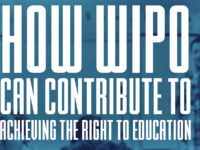The Standing Committee on Canadian Heritage has conducted several weeks of hearings as part of its study on Remuneration Models for Artists and Creative Industries. While the copyright review is the responsibility of the Standing Committee on Industry, Science and Technology, the heritage committee was asked to conduct a study to help inform its work. The mandate was described in the following motion:

Fair Dealing by Giulia Forsythe (CC BY-NC-SA 2.0) https://flic.kr/p/dRkXwP
Copyright
Why the Government’s Copyright Board Plans Threaten to Spark Another Lobbying Battle
Copyright reform has long been viewed as one of the more contentious policy issues on the Canadian agenda, pitting creators, education groups, innovative companies, and a growing number of individuals against one another in processes that run for years and leave no one fully satisfied. Indeed, my Hill Times op-ed notes the copyright review currently underway before the Standing Committee on Industry, Science and Technology promises to run for months with MPs hearing from a broad range of stakeholders presenting perspectives that will be difficult to reconcile.
Separating Fact From Fiction: The Reality of Canadian Copyright, Fair Dealing, and Education
This week, I had the honour of speaking at a packed event at the World Intellectual Property Organization titled How WIPO Can Contribute to Achieving the Right to Education. The panel featured speakers from around the world focusing on the copyright-related education issues. My talk, which used emerging data from the copyright review, focused on the reality of Canadian copyright, fair dealing, and education. A recording of my remarks embedded into my slide presentation is posted below in a YouTube video.











